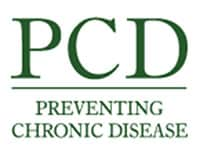
Dr George Lundberg in 1966 (left) by Marita Bitans and in 2019 (right) by Mary Heersink
In my most recent column, 'They All Laughed When I Spoke of Greedy Doctors,' I attempted to provide a global understanding of some of the economic forces that have made American medicine what it is, how that happened, and why it is still happening.
I did not propose a fix. I have been proposing fixes for more than 30 years, on the pages of JAMA until 1999 and then on Medscape, most recently in 2019 with Healthcare for All in a Land of Special Interests.
Where you stand depends a lot on where you sit.
Is this good news or bad news? When William Hubbard was the dean of the University of Michigan School of Medicine in 1969, he said that "an academic medical center is the most efficient energy and resource trapping device that has ever been created" (Personal communication, 1969).
To me as a faculty member of an academic medical center for many years, that was great news. We could grow faculty, erect buildings, take the best care of sick people, churn out research papers, mint new physicians and specialists, and get paid well in the process for doing "the Lord's work." What's not to like? At that time, the proportion of the country's GNP expended for medical and healthcare was about 7%. And the predicted life span of an American at birth was 70.5 years.
Is this good news or bad news? In 2021, the proportion of our annual GDP consumed by healthcare was 18.3%, totaling $4.3 trillion, or $12,914 per person. For perspective, in 2021, the median income per capita was $37,638. Because quite a few Americans have very high incomes, the mean income per capita is much higher: $63,444. Predicted life span in 2021 was 76.4 years.
Thus, in a span of 53 years (1969-2022), only 5.9 years of life were gained per person born, for how many trillions of dollars expended? To me as a tax-paying citizen and payer of medical insurance premiums, that is bad news.
Is this good news or bad news? If we compare developed societies globally, our medical system does a whole lot of things very well indeed. But we spend a great deal more than any other country for healthcare and objectively achieve poorer outcomes. Thus, we are neither efficient nor effective. We keep a lot of workers very busy doing stuff, and they are generally well paid. As a worker, that's good news; as a manager who values efficiency, it's bad news indeed.
Is this good news or bad news? We're number one at finding money to pay people to do "healthcare work." More Americans work in healthcare than any other field. In 2019, the United States employed some 21,000,000 people doing "healthcare and social assistance." Among others, these occupations include physicians, dentists, dental hygienists and assistants, pharmacists, registered nurses, LVNs/LPNs, nursing aides, technologists and technicians, home health aides, respiratory therapists, occupational and speech therapists, social workers, childcare workers, and personal and home care aides. As a patient, parent, grandparent, and great-grandparent, it is good news to have all those folks available to take care of us when we need it.
So, while I have cringed at the frequent exposés from Roy Poses of what seem to me to be massive societal betrayals by American healthcare industry giants, it doesn't have to be that way. Might it still be possible to do well while doing good?
A Jobs Program
Consider such common medical procedures as coronary artery stents or bypass grafts for stable angina (when optimal medical therapy is as good, or better than, and much less expensive); PSAs on asymptomatic men followed by unnecessary surgery for localized cancer; excess surgery for low back pain; and the jobs created by managing the people caught up in medical complications of the obesity epidemic.
Don't forget the number of people employed simply to "follow the money" within our byzantine cockamamie medical billing system. In 2009, this prompted me to describe the bloated system as a "healthcare bubble" not unlike Enron, the submarket real estate financing debacle, or the dot-com boom and bust. I warned of the downside of bursting that bubble, particularly lost jobs.
The Affordable Care Act (ACA) provided health insurance to some 35 million Americans who had been uninsured. It retarded healthcare inflation. But it did nothing to trim administrative costs or very high pay for nonclinical executives, or shareholder profits in those companies that were for-profit, or drug and device prices. Without the support of all those groups, the ACA would never have passed Congress. The ACA has clearly been a mixed blessing.
If any large American constituency were ever serious about reducing the percentage of our GDP expended on healthcare, we have excellent ways to do that while improving the health and well-being of the American people. But remember, one person's liability (unnecessary work) is another person's asset (needed job).
The MBAization of Medicine
Meanwhile, back at Dean Hubbard's voracious academic medical center, the high intellect and driven nature of those who are attracted to medicine as a career has had other effects. The resulting organizations reflect not only the glorious calling of caring for the sick and the availability of lots of money to recruit and compensate leaders, but also the necessity to develop strong executive types who won't be "eaten alive" by the high-powered workforce of demanding physicians and the surrounding environment.
Thus, it came as no great surprise that in its 2021 determination of America's top 25 Best Large Employers, Forbes included five healthcare organizations and seven universities. Beating out such giants as NASA, Cisco, Microsoft, Netflix, and Google, the University of Alabama Birmingham (UAB) Hospital was ranked number one. Mayo Clinic and Yale University came in third and fifth, respectively, and at the other end of the list were Duke (23), MIT (24), and MD Anderson (25).
My goodness! Well done.
Yet, as a country attempting to be balanced, Warren Buffett's descriptive entreaty on the 2021 failure of the Amazon-Chase-Berkshire Hathaway joint initiative remains troubling. Calling upon Haven to change the US healthcare system, Buffet said, "We learned a lot about the difficulty of changing around an industry that's 17% of the GDP. We were fighting a tapeworm in the American economy, and the tapeworm won." They had failed to tame the American healthcare cost beast.
I am on record as despising the "MBAization" of American medicine. Unfairly, I blamed a professional and technical discipline for what I considered misuse. I hereby repent and renounce my earlier condemnations.
Take It All Over?
Here's an idea: if you can't beat them, join them.
Medical care is important, especially for acute illnesses and injuries, early cancer therapy, and many chronic conditions. But the real determinants of health writ large are social: wealth, education, housing, nutritious food, childcare, climate, clean air and water, meaningful employment, safety from violence, exercise schemes, vaccinations, etc.
Why doesn't the American medical industrial complex simply bestow the label of "healthcare" on all health-related social determinants? Take it all over. Good "healthcare" jobs for everyone. Medical professionals will still be blamed for the low health quality and poor outcome scores, the main social determinants of health over which we have no control or influence.
Let that tapeworm grow to encompass all social determinants of health, and measure results by length and quality of life, national human happiness, and, of course, jobs. We can do it. Let that bubble glow. Party time.
And that's the way it is. That's my opinion. I'm Dr George Lundberg, At Large for Medscape.
George Lundberg, MD, is editor-in-chief at Cancer Commons, president of the Lundberg Institute, executive advisor at Cureus, and a clinical professor of pathology at Northwestern University. Previously, he served as editor-in-chief of JAMA (including 10 specialty journals), American Medical News, and Medscape.
Follow Medscape on Facebook, Twitter, Instagram, and YouTube
Credits:
Lead image: George Lundberg, MD
Image 1: George Lundberg, MD
Medscape Internal Medicine © 2023 WebMD, LLC
Any views expressed above are the author's own and do not necessarily reflect the views of WebMD or Medscape.
Cite this: George D. Lundberg. Healthcare in America: Let That Tapeworm Grow - Medscape - Apr 11, 2023.









Comments